The East African Crude Oil Pipeline (EACOP) project reaffirmed its commitment to fostering local talent with a high-level delegation visit to the Uganda Petroleum Institute in Kigumba (UPIK).
The delegation included Maj. Gen. Paul Kisesa Simuli, the High Commissioner of Tanzania to Uganda, Mr. Ernest Rubondo, Executive Director of PAU, and EACOP Managing Director Mr. Guillaume Pierart, among others.
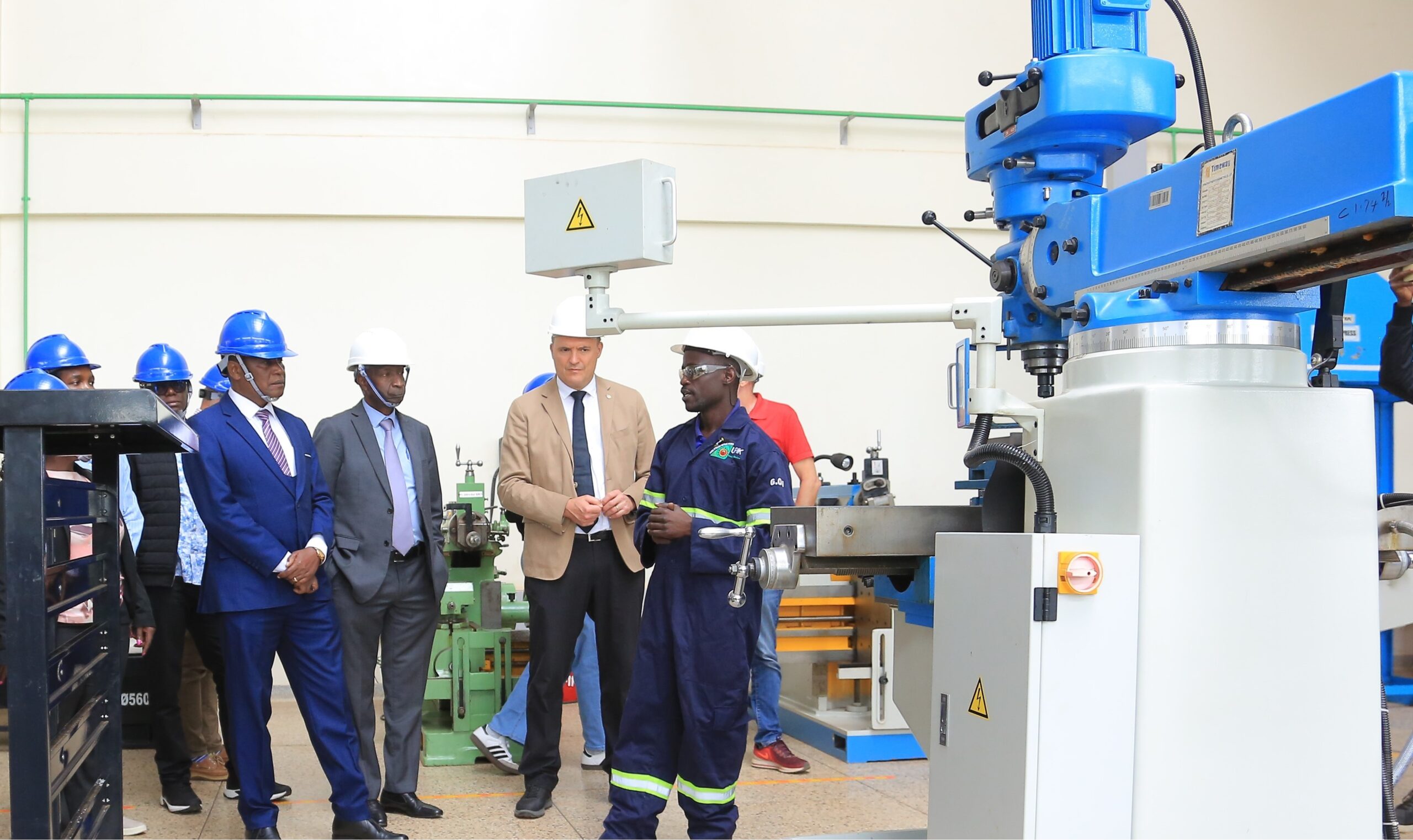
They were joined by students enrolled in the program: the first cohort of EACOP trainees preparing to operate and manage the pipeline.
The visit highlighted EACOP’s significant investment in national content, a core pillar of the project’s strategy.
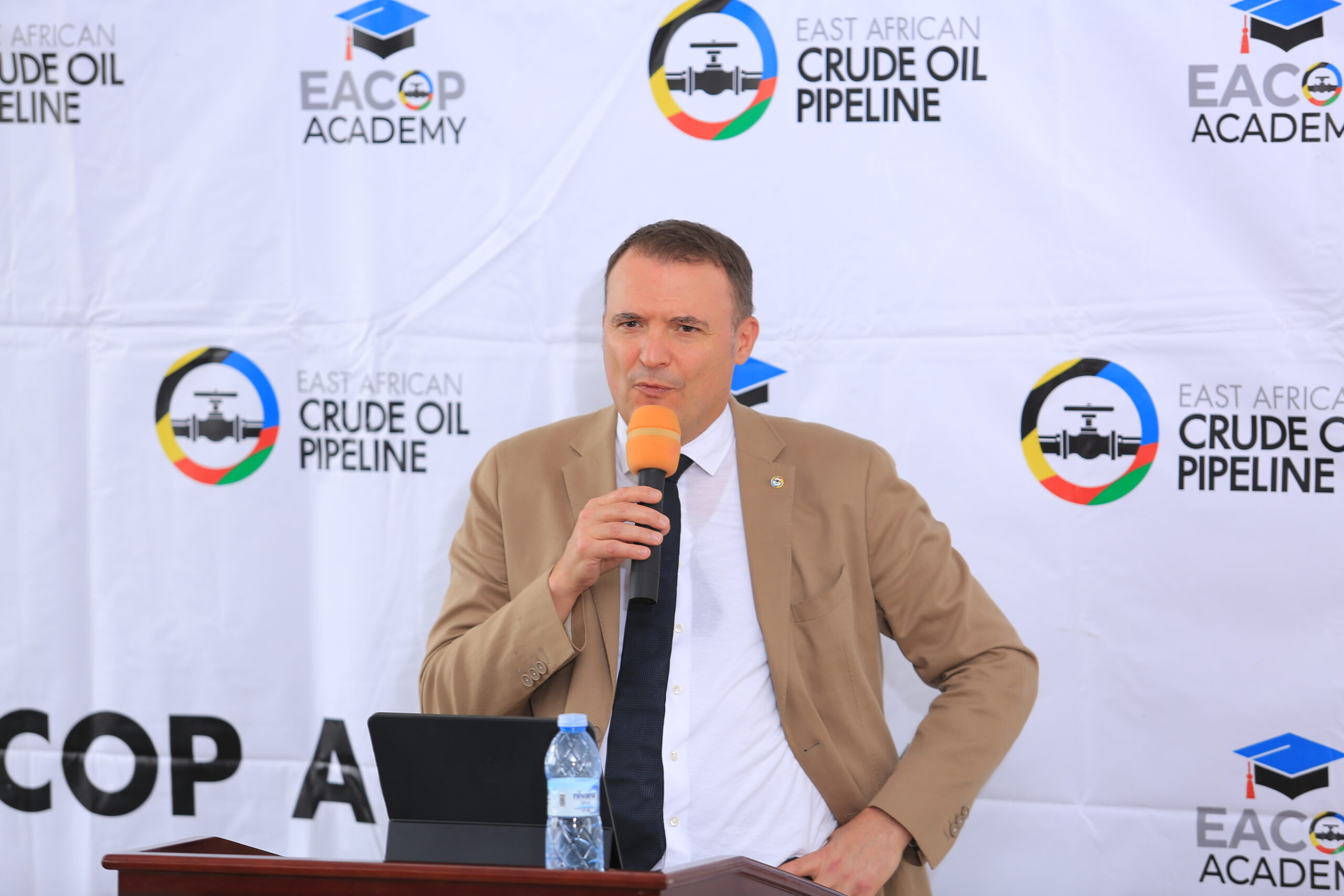
Addressing the delegation, Guillaume Pierart, Managing Director of EACOP, emphasized the project’s transformative investment in local talent.
“With a $15 million investment over 30 months, this is one of the largest capacity-building programs in the region,” he stated, further adding, “But even more impressive than the numbers are the return on this investment that we see here today, not in figures, but in people. In the talent and potential of these dedicated trainees.”
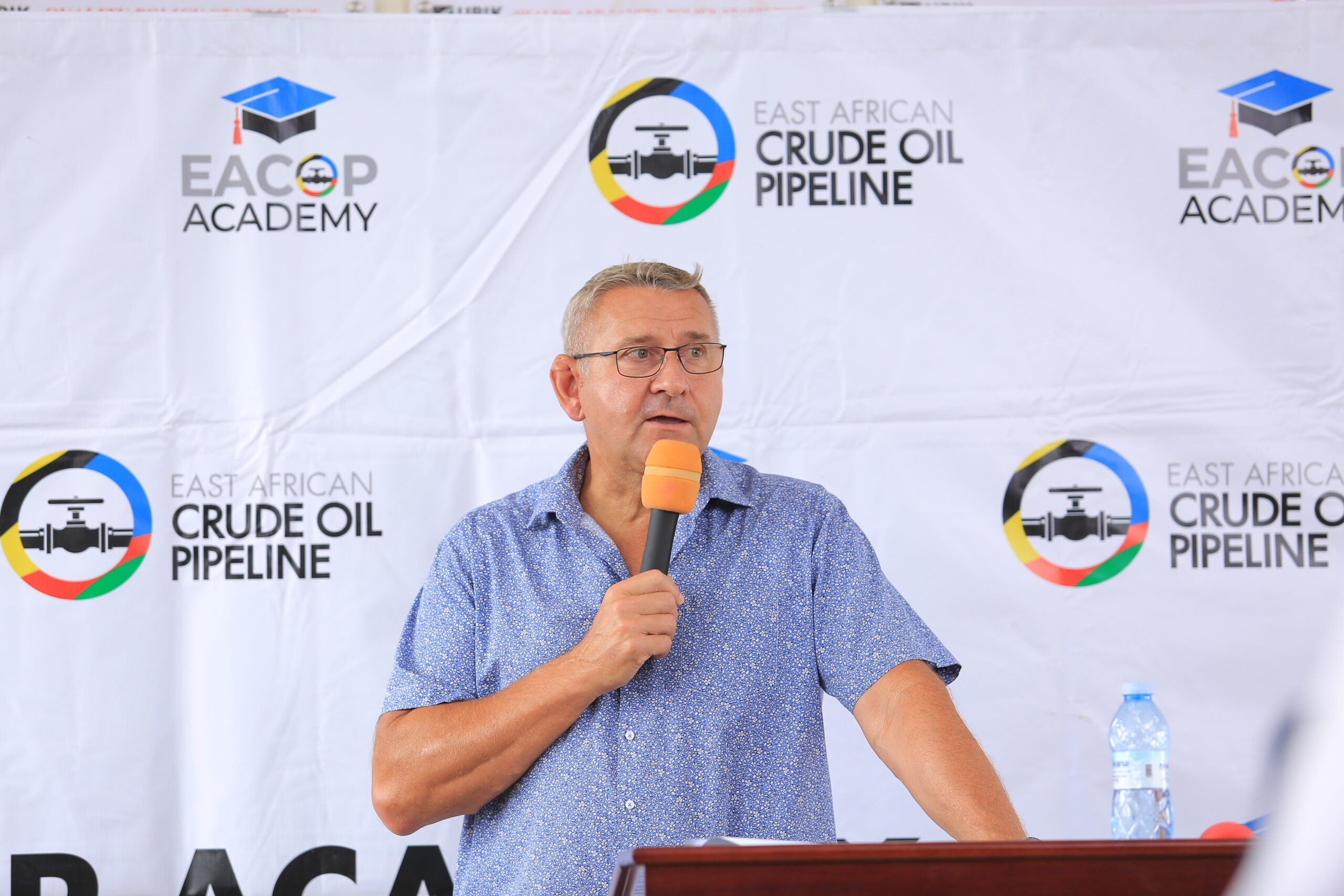
The program’s success is a result of a rigorous and highly competitive selection process. Laurent Stephane, Tilenga & EACOP Academy Manager, noted the overwhelming interest from the public.
“We had 13,000 applicants in Uganda who expressed interest in joining the project. From this vast pool, we selected the best candidates. A year ago, 141 trainees began this journey, and today, all 141 remain. The fact that no one has been dismissed for poor results or has chosen to leave speaks volumes about their motivation and the program’s success.”
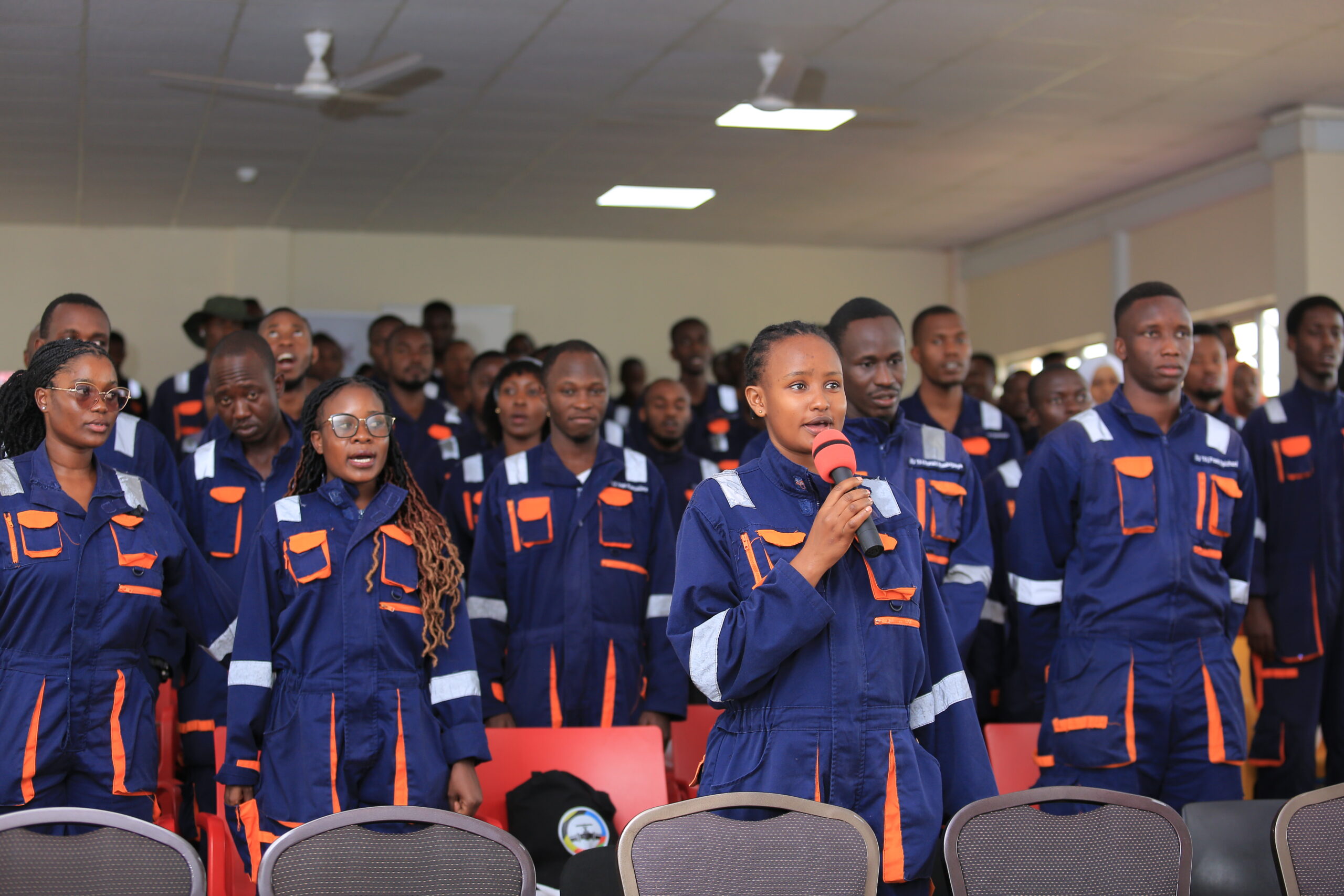
The comprehensive training curriculum extends beyond Uganda’s borders, providing trainees with world-class international exposure.
“Trainees are rotating to specialized facilities, including Takatouf Petroleum Oman (TPO), one of the largest oil and gas training centres in the world, and INSTEP, the Petronas training centre in Malaysia.” explained Stephane further adding,“They will gain real-life experience in a safe environment before joining the EACOP facilities for the crucial pre-commissioning and commissioning phases. They will work alongside commissioning mentors to learn how to build, operate, and maintain the pipeline, which is their core future function.”
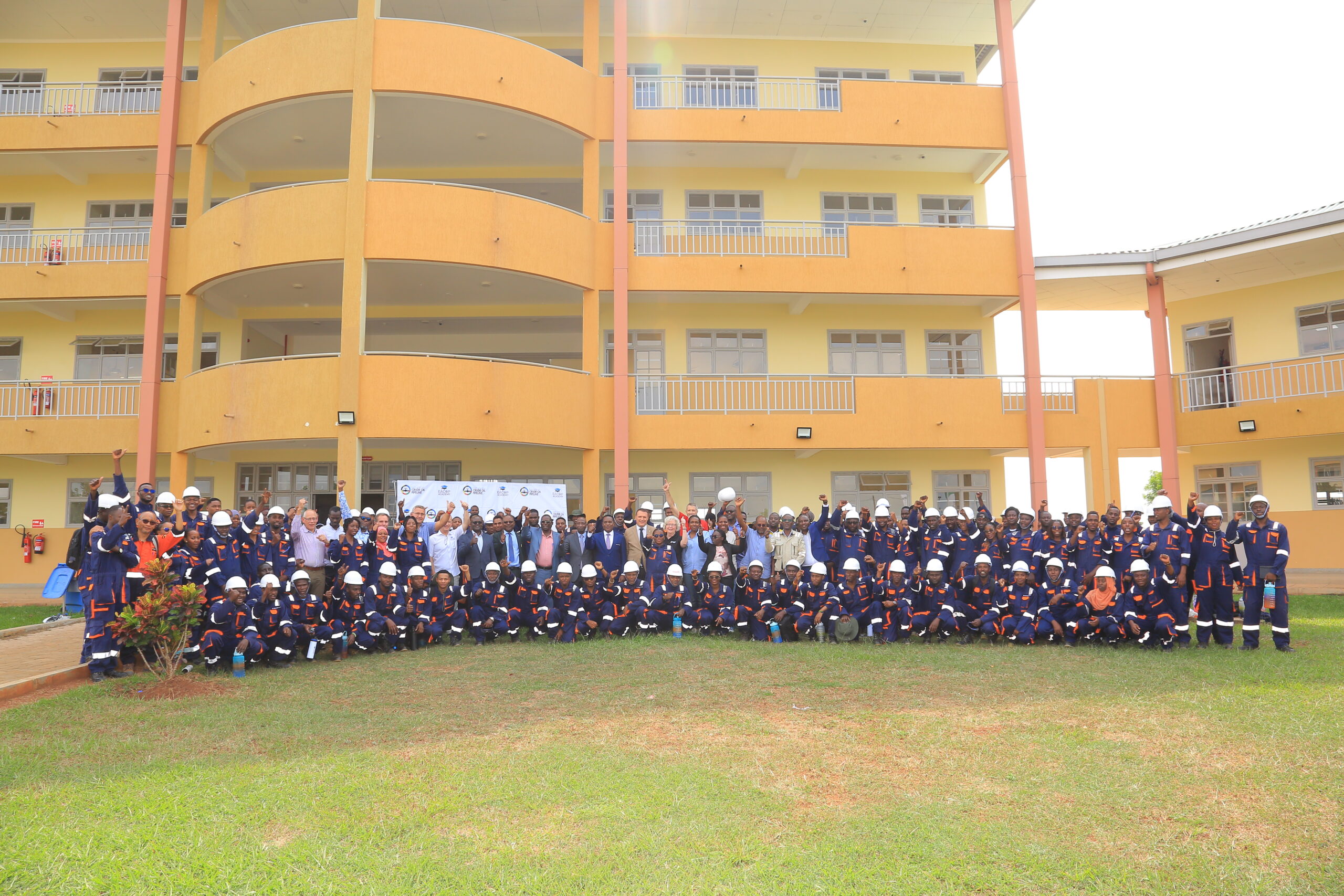
This focus on human capital development was praised by Ernest Rubondo, the Executive Director of the Petroleum Authority of Uganda.
“Uganda’s Oil and Gas Sector has a policy whose goal is to create lasting value for the country,” he remarked.
“Often, people feel this value is only in the money from selling oil and gas. But I want to say our biggest value is in skilling young people, creating employment, and facilitating technology transfer. Having visited many institutes globally, I am proud to say that UPIK now has the same capacity as those leading institutions.”
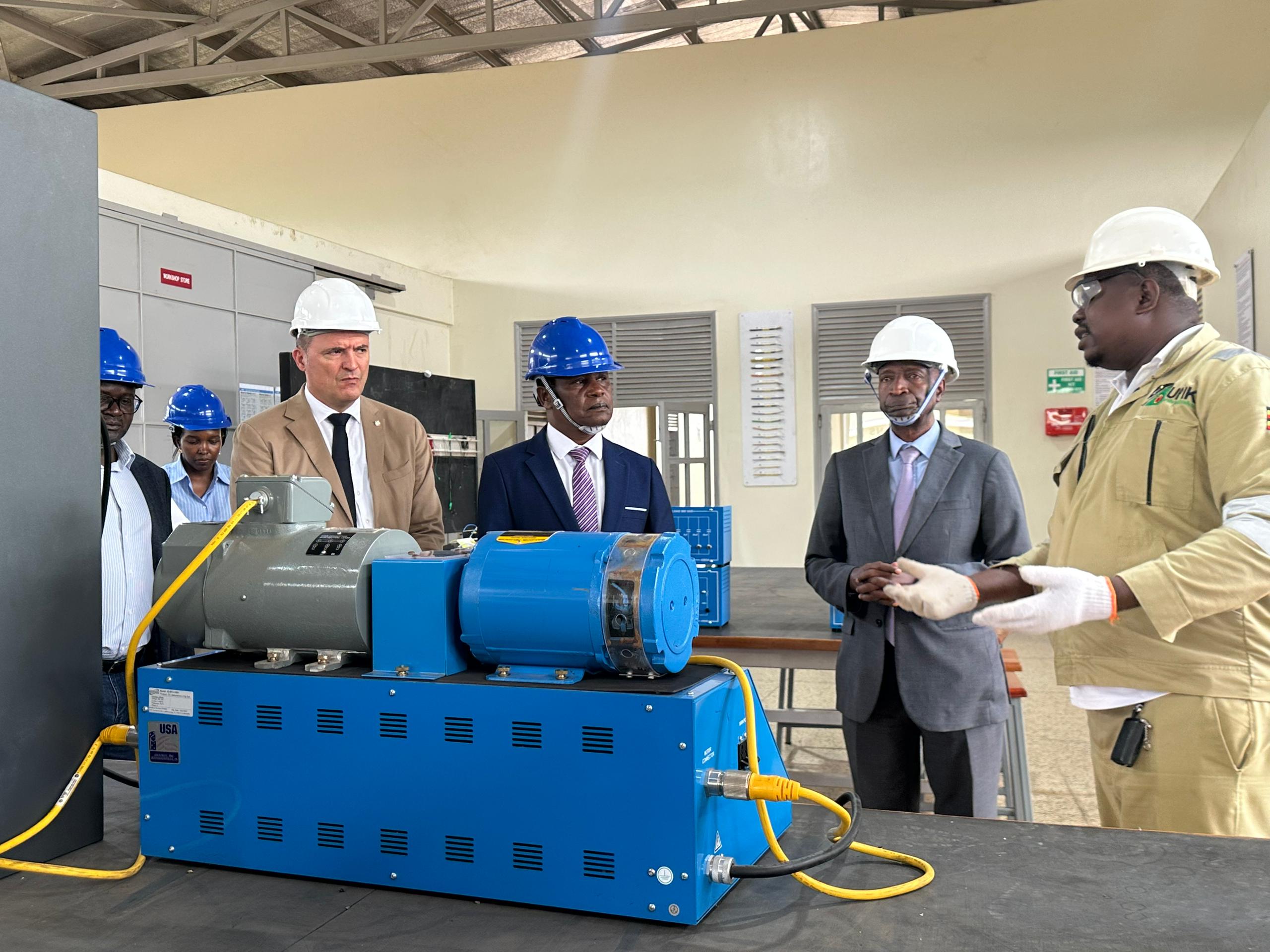
The transformative power of the program is best captured in the stories of the trainees themselves. Sekera Jacob, once a history teacher, shared her incredible journey
. “Coming from a teaching background, I hardly believed it when I was selected by EACOP. Someone with no engineering background might seem an unlikely choice, but EACOP saw beyond my past to my potential,”she said.
“This experience has taught me about resilience, self-belief, and the power of embracing the unknown. I have moved from the world of chalk to the world of pipelines, and I am not about to stop.”
While addressing the delegates during the visit, H.E. Maj. Gen. Paul Kisesa Simuli, the High Commissioner of Tanzania to Uganda, commended the project’s vision.
“This program will attract more investors and open more doors for our youth to be trusted and employed, even beyond our borders. I look forward to the continued cooperation between our governments, driven by shared opportunities like this.” – H.E Major General Paul Kisesa Simuli, High Commissioner of Tanzania to Uganda
EACOP project status is at 62% progress, construction progress is at 33%, with the Pipeline welded reaching today 400km at 25%. Above Ground Installations (AGIs) stands at 54%, Jetty at 60% construction, Tank at 73% and Terminal 26%.
The EACOP training program demonstrates the project’s long-term vision for Uganda, ensuring that the benefits of the nation’s natural resources are powered by its people.
About East African Crude Oil Pipeline
The East African Crude Oil Pipeline is a 1,443km crude oil export infrastructure that will transport Uganda’s crude oil from Kabaale – Hoima in Uganda to the Chongoleani peninsula near Tanga in Tanzania for export to the international market. This major export system includes 1,443 km (296 km in Uganda and 1147km in Tanzania) of insulated and buried 24” inch pipeline, 6 pumping stations, two pressure reduction stations and a marine export terminal in Tanzania.
Following the Final Investment Decision (FID) that was taken on the 1st of February 2022, East African Crude Oil Pipeline (EACOP) Ltd. on 15th February, concluded the formation of the company that will construct and operate the pipeline.
EACOP Ltd. is a special purpose company, governed by its Shareholders Agreement in which TotalEnergies (62%), Uganda National Oil Company (UNOC – 15%), Tanzania Petroleum Development Corporation (TPDC – 15%) and CNOOC (8%) are shareholders.


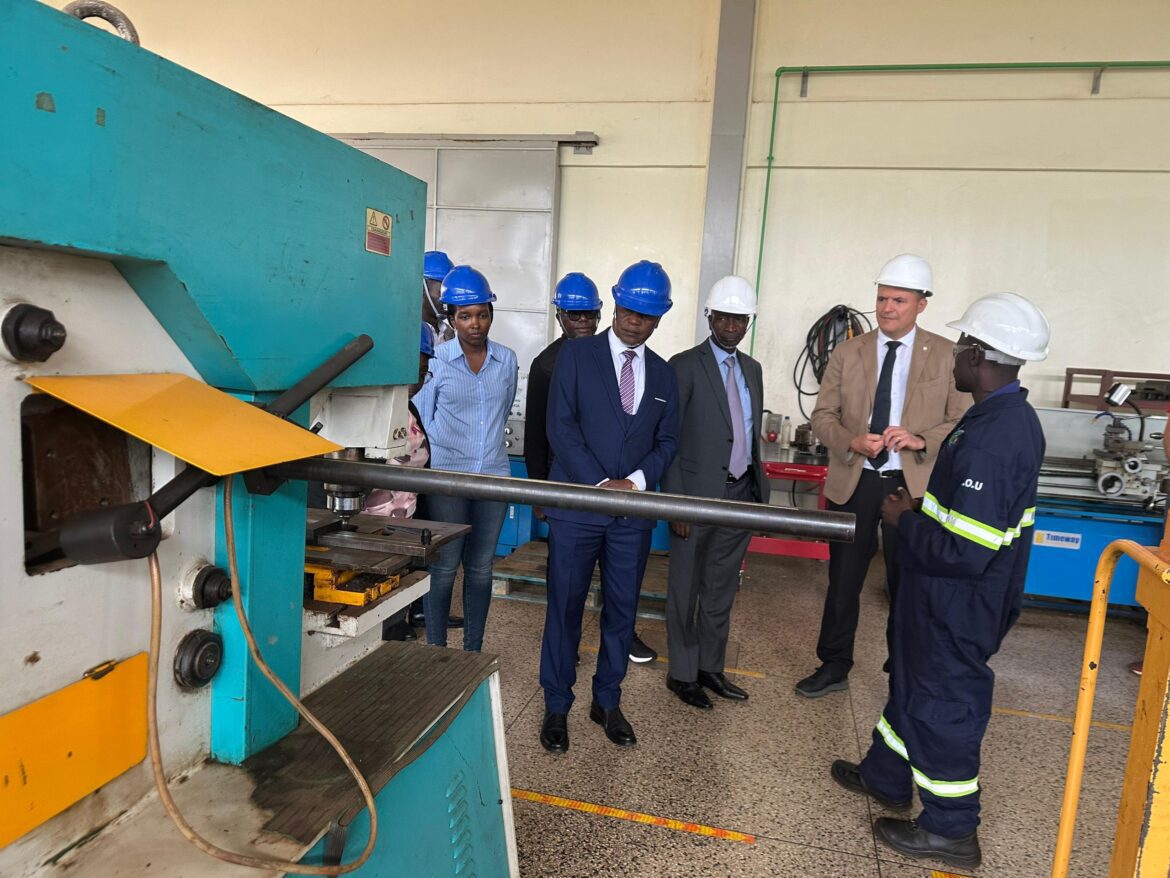
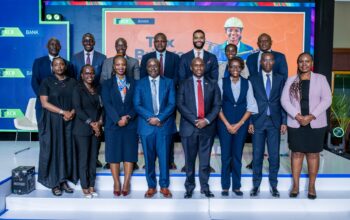
very nice post, i certainly love this website, keep on it